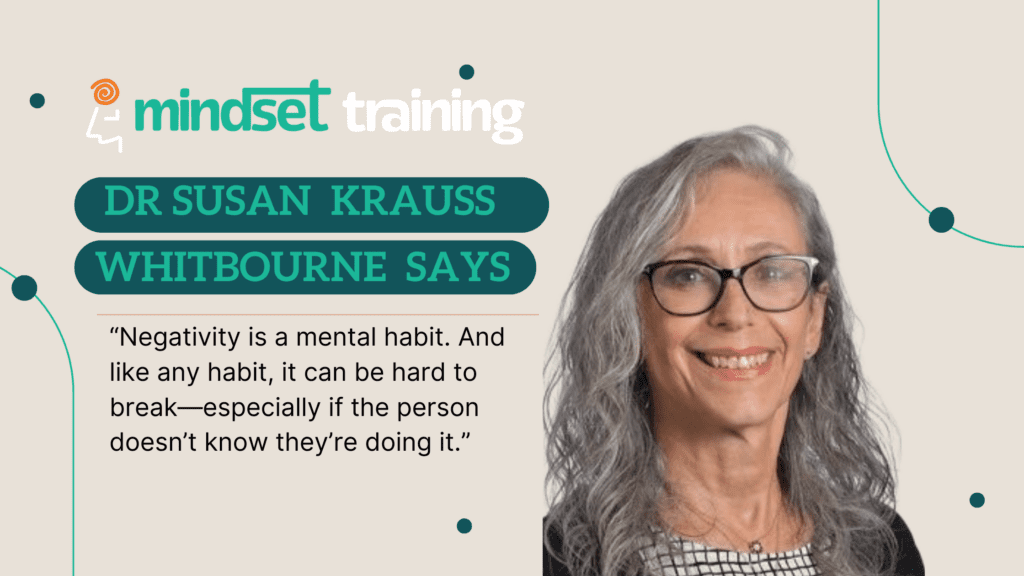We all have bad days.
We complain. We vent. We feel down.
That’s normal.
But some people live in that headspace 24/7.
They drain the room, kill good vibes, and leave you emotionally tired. These are what we often call “negative people.”
Let’s unpack what that means—and how to spot one before they pull you down too.
What Are Negative People?
A negative person is more than just someone who is struggling. Even when things are going well, this person finds problems. They always point out what’s wrong.
They see problems in every solution. They poke holes in your progress. And they often make you feel worse after being around them.

Psychologist Dr Susan Krauss Whitbourne says,
“Negativity is a mental habit. And like any habit, it can be hard to break—especially if the person doesn’t know they’re doing it.”
Not every negative person is cruel or toxic. But their energy is heavy, and it sticks to those around them.
So, how can you tell if someone’s carrying that cloud?
Let’s go over the 7 warning signs to look out for.
7 Warning Signs of a Negative Person
1. Plays the Victim in Every Situation
In every office, there is always a negative person who blames others in every situation. They think that they are innocent and play the victim. They thought life was bad with them.
They often blame office politics if they don’t get promoted. Some think the boss is against them. They rarely stop to consider if their own work or behavior played a role.
This mindset often comes from past disappointments, but it becomes a habit. And it drags down everyone around them.
Be kind—but don’t get pulled into the blame spiral. Protect your peace.
2. Criticizes More Than They Compliment
People with negative mindsets bring gloom to discussions. They zero in on flaws while missing any bright spots. Spotting someone’s talents doesn’t appeal; they only rarely praise at a glacial pace.
If you shared a new idea, they would be quick to tell you what’s “wrong with it.” And if someone decides to succeed, they must be dismissed as trying way too hard for no reason.
Anyone can resort to constant negative feedback for various reasons. In this case, it’s rooted in deep-seated insecurity. It’s better to be around people who support you. Avoid those who put you down because you tried.
3. Constantly Complains About Everything
To a negative person, there’s always something to complain about. The weather, their job, traffic, prices, politics—nothing ever feels good enough.
Even during positive moments, they’ll find the flaw. Go on a trip? They’ll focus on the flight delay. Land a new client? They’ll argue, “Fine, but what if they skip renewal?”
This reaction often becomes a habit. It makes the person focus only on problems, not on new chances.
Spending too much time around constant complainers can rewire your thinking, too. If you see this pattern, spend less time with them. Try to focus on solutions instead of problems.
4. Sees the Worst in People
Every person in his sight comes with unseen intentions right in his mind. The essential goodness in people and a pure heart are hidden for such a person in every relationship. When someone tries to help him, he doesn’t see it as support. He thinks they have a hidden motive. He rarely sees things in a positive way.
They jump to conclusions about others’ motives, even when there’s no clear cause. When someone lends a hand, they suspect an angle. When someone achieves something, they chalk it up to luck or special treatment, not hard work.
People who view the world in this manner can hardly trust others. They somehow have gone through certain levels of torture in their relations, as a result of which all of us have learned the art of making fixed approaches.
5. Expect the Worst in Every Situation
They don’t just fear bad outcomes; they assume them.
If you’re thrilled to launch a venture, you’ll hear, “What if it flops?” Planning a getaway? Some warn about missing flights, lost luggage, and sudden storms.
That mindset, called catastrophizing, roots in worry or past setbacks. It aims to shield, yet it halts motion for all involved.
Regular exposure to chronic pessimists can erode your drive and stifle exploration. Counter their caution with a dose of promise. Not every gamble ends in loss, nor does each achievement bring collapse.
Embrace measured steps forward to keep momentum alive. Grow resilience, welcome new experiences, and build confidence over time.
6. Lacks Gratitude
Gratitude is a powerful mental reset. But negative people rarely practice it. Instead of focusing on what’s going well, they zero in on what’s missing.
They might get a raise but complain it wasn’t enough. Or receive help and criticize how it was offered.
This style of thinking frequently results from feeling entitled to something better or from always comparing their life to that of others. However, without thankfulness, even the most significant occasions might seem meaningless.
Try this: when someone always finds the negative in a win, flip the script. Gently ask, “But isn’t it great that…” and insert a positive takeaway. It may not change them, but it’ll protect your perspective.
7. Brings Others Down to Feel Better
Some negative people boost their self-worth by lowering others. It’s not always obvious. Sometimes it’s sarcasm. Other times, it’s passive-aggressive “advice.”
For instance, you mention a success, and they respond, “That’s nothing special,” or “Anyone could have achieved that.” It feels small, but it hurts. Their reaction comes from feeling insecure.
They see your growth as a threat and downplay it. That response says more about them. You shouldn’t shrink to keep them close. Their discomfort doesn’t fall on you. Share your achievements anyway.

How to Deal with a Negative Person
You don’t always decide who stays in your life. Negativity can turn up at work, at home, or even in your inner circle.
Here’s how to deal with it without letting it pull you in:
1. Set Boundaries (Without Guilt)
You don’t owe anyone an explanation for needing space. Guard your peace. Spend less time with people who constantly complain or shift the topic if things start getting negative.
2. Don’t Try to Fix Them
This is key. You can offer support—but you can’t change them. That’s their work. Trying to “save” them often drains you instead.
3. Call Out Patterns—Gently
People sometimes don’t realize their outlook is bleak. When you share a close bond, address it gently.
For example:
“I see that our conversations often zero in on issues. Could we shift toward finding fixes instead?”
If they’re receptive, continue. If not, withdraw.
How to Avoid Becoming a Negative Person
Let’s be honest—any of us can fall into these patterns.
Here’s how to stay self-aware and positive, even during hard seasons:
1. Practice Daily Gratitude
Even thirty seconds a day can shift your mindset. Try writing down 3 small things you’re grateful for—daily.
2. Catch Complaints Before They Spread
Complaining is okay. But balance it with action. Next time you vent, ask yourself:
“What can I do about this?”
3. Celebrate Other People’s Wins
Jealousy feeds negativity. Instead, train yourself to celebrate others, even when you’re not where you want to be yet. Their success doesn’t threaten yours.
4. Feed Your Mind the Right Stuff
Positive inputs = positive outlook.
Books, podcasts, friends, routines—every piece plays a role. Surround yourself with what lifts you up, not what pulls you down.
Final Thoughts
Everyone’s negative sometimes. Life gets messy. But the people who live in negativity? You’ll feel it. And you’ll feel it fast.
Establish boundaries as soon as you see those signs. You should have relationships that make you feel better, not ones that make you feel worse. Additionally, don’t forget to check in with yourself. Are the people around you bringing peace?
- They’re not perfect.
- They’re just intentional with their energy.




